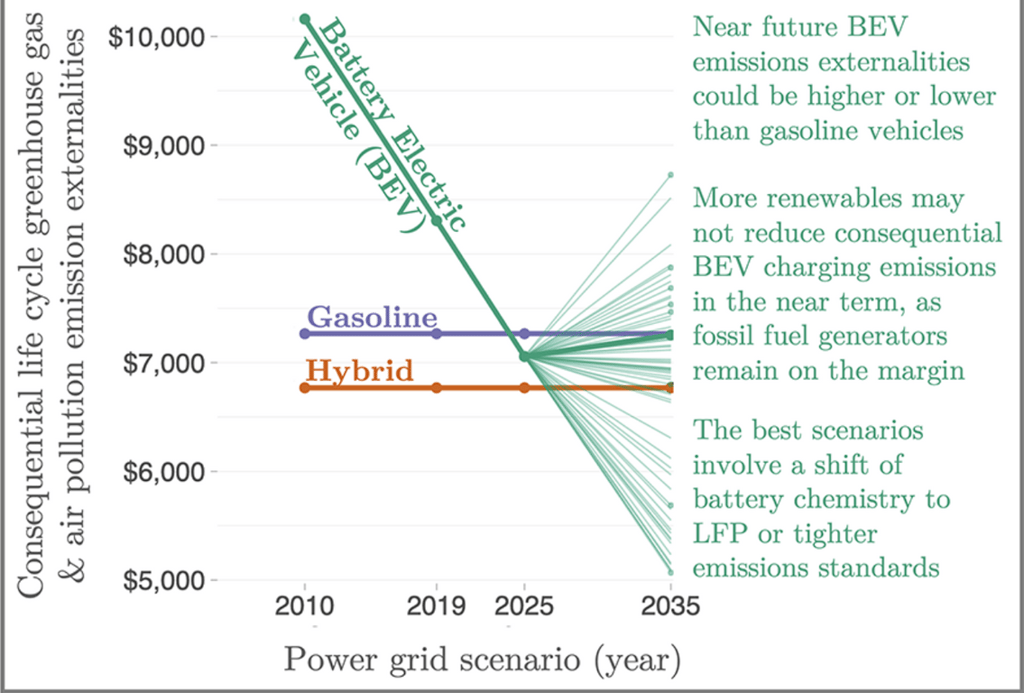The Cost of Electric Vehicles is Falling, Paving the Way for the End of Petrol Cars
It is projected that emissions from electric vehicles will continue to decrease until 2025, at which point they may stall, increase, or decrease depending on important variables including public policy, battery technology, and the evolution of the power grid.
According to a new study from Carnegie Mellon University, until 2025, the prices of owning and running electric cars (EVs) would decrease. This encouraging trend is linked to the eastern United States' transition from coal-fired power plants to natural gas plants, which dramatically lowers the costs of electric vehicles (EVs) for both climate change mitigation and human health. The analysis highlights how crucial a role public policy, battery technological developments, and power grid evolution will play in shaping the trajectory of EV emissions costs in the future.
The study, which focuses on the PJM power grid region, concludes that moving away from nickel-based batteries and increasing emission requirements for fossil fuel power plants and automobiles is critical for further lowering EV lifetime emissions. The study found that nickel-free battery options, such as lithium iron phosphate, can help to reduce emissions costs.
Although the analysis predicts that the cost of EV emissions will continue to drop until 2025, what happens after that is still up in the air and will rely on a variety of factors, including changes in public policy, battery technology breakthroughs, and the development of the power grid. Long-term changes in emissions regulations and the continuous shift to greener energy sources will profoundly influence how electric cars will affect the environment.
As electric vehicle technology advances, there is rising confidence about the ultimate abolition of regular gasoline automobiles. This move, however, highlights the issue of accessibility, with questions voiced regarding the cost of EVs for the general public. The report emphasizes the necessity of ongoing efforts to make EVs more affordable, ensuring that the shift to electric mobility benefits a wider population while also contributing to a more sustainable and cleaner future.
In this evolving landscape, cost reductions and continued breakthroughs in electric car technology increase the possibility of a dramatic shift in the automobile industry. As electric vehicles become more competitive in terms of lifetime emissions costs, the era of gasoline automobiles may be coming to an end, possibly changing the automotive business and making electric vehicles more accessible to a larger audience.
Interestingly, governments are reevaluating fossil fuel subsidies in line with global development, providing a great chance to change the automobile sector. Traditional gasoline automobiles may become a luxury for the wealthy as incentives move to incentivize electric vehicles. This change is intended to comply with environmental goals and eliminate harmful emissions.


Picture: Clean Technica
Share this story:
Share this story:
